
The Worshipful Society of Apothecaries of London is one of the livery companies of the City of London. It is one of the largest livery companies and ranks 58th in their order of precedence.
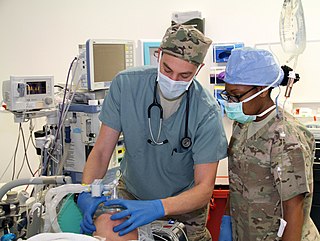
Anesthesiology, anaesthesiology, or anaesthesia is the medical specialty concerned with the total perioperative care of patients before, during and after surgery. It encompasses anesthesia, intensive care medicine, critical emergency medicine, and pain medicine. A physician specialized in anesthesiology is called an anesthesiologist, anaesthesiologist, or anaesthetist, depending on the country. In some countries the terms are synonymous, while in other countries they refer to different positions and anesthetist is only used for non-physicians, such as nurse anesthetists.
Doctor of Medicine is a medical degree, the meaning of which varies between different jurisdictions. In the United States, and some other countries, the M.D. denotes a professional degree. This generally arose because many in 18th-century medical professions trained in Scotland, which used the M.D. degree nomenclature. In England, however, Bachelor of Medicine, Bachelor of Surgery (M.B.B.S.) was used and eventually in the 19th century became the standard in Scotland too. Thus, in the United Kingdom, Ireland and other countries, the M.D. is a research doctorate, honorary doctorate or applied clinical degree restricted to those who already hold a professional degree (Bachelor's/Master's/Doctoral) in medicine. In those countries, the equivalent professional degree to the North American, and some others' usage of M.D. is still typically titled Bachelor of Medicine, Bachelor of Surgery.

Podiatry, or podiatric medicine and surgery, is a branch of medicine devoted to the study, diagnosis, and treatment of disorders of the foot and ankle and lower limb. The healthcare professional is known as a podiatrist. The US podiatric medical school curriculum includes lower extremity anatomy, general human anatomy, physiology, general medicine, physical assessment, biochemistry, neurobiology, pathophysiology, genetics and embryology, microbiology, histology, pharmacology, women's health, physical rehabilitation, sports medicine, research, ethics and jurisprudence, biomechanics, general principles of orthopedic surgery, plastic surgery, and foot and ankle surgery.
A Bachelor of Medicine, Bachelor of Surgery, MBBS is a medical degree granted by medical schools or universities in countries that adhere to the United Kingdom's higher education tradition. Despite the historical distinction in nomenclature, these degrees are typically combined and conferred together. This degree is usually awarded as an undergraduate degree, but it can also be awarded at graduate-level medical institutions. The typical duration for completion is five to six years.
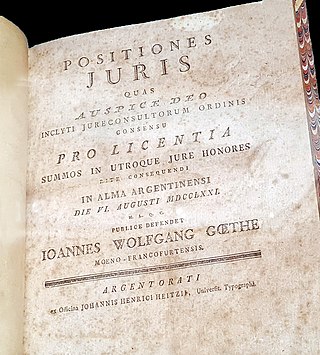
A licentiate is an academic degree present in many countries, representing different educational levels. It may be similar to a master's degree when issued by pontifical universities and other universities in Europe, Latin America, and Syria.
Membership of the Royal Colleges of Physicians of the United Kingdom (MRCP(UK)) is a postgraduate medical diploma in the United Kingdom (UK). The examinations are run by the Federation of the Medical Royal Colleges – the Royal College of Physicians of London, the Royal College of Physicians of Edinburgh, and the Royal College of Physicians and Surgeons of Glasgow. The three Royal Colleges of Physicians share this common three part assessment in general medicine which consists of two written parts and one clinical examination. Examinations are held throughout the UK and in overseas centres.
A number of professional degrees in dentistry are offered by dental schools in various countries around the world.
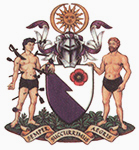
The Royal College of Emergency Medicine (RCEM) is an independent professional association of emergency physicians in the United Kingdom which sets standards of training and administers examinations for emergency medicine. The patron is The Princess Royal.
Medical education in the United Kingdom includes educational activities involved in the education and training of medical doctors in the United Kingdom, from entry-level training through to continuing education of qualified specialists. A typical outline of the medical education pathway is presented here. However training schemes vary in different pathways may be available.
The conjoint was a basic medical qualification in the United Kingdom administered by the United Examining Board. It is now no longer awarded. The Conjoint Board was superseded in 1994 by the United Examining Board, which lost its permission to hold qualifying medical examinations after 1999.
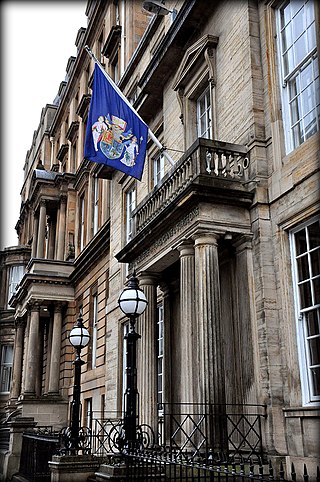
The Royal College of Physicians and Surgeons of Glasgow is an institute of physicians and surgeons in Glasgow, Scotland.
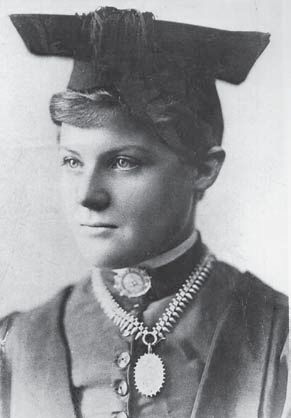
Georgina Dagmar Berne was an Australian medical doctor and the first female student to study medicine in Australia.
An international medical graduate (IMG), earlier known as a foreign medical graduate (FMG), is a physician who has graduated from a medical school outside of the country where he or she intends to practice. The term non-local medical graduate may be similarly used in countries with distinct licensing regions within them. Generally, the medical school of graduation is one listed in the World Directory of Medical Schools (WDOM) as accredited by the Foundation for Advancement of International Medical Education and Research or the World Health Organization.
The Faculty of Dental Surgery of the Royal College of Surgeons of England is an independent UK professional body committed to enabling dental specialists to provide patients with the highest possible standards of practice and care. The faculty is an integral part of the Royal College of Surgeons of England and is located at the College's headquarters in Lincoln's Inn Fields in London.
Fellow of the Royal Australasian College of Physicians, abbreviated as the post-nominal initials FRACP, is a recognition of the completion of the prescribed postgraduate specialist training programme in internal adult or internal paediatric medicine of the Royal Australasian College of Physicians.
The Fellow of College of Physicians and Surgeons (FCPS) is a fellow of College of Physicians and Surgeons Pakistan (CPSP) who holds a professional qualification (fellowship) awarded after completing specialized training in a selected area of specialization and passing the examination in that particular specialty.
The Triple Qualification (TQ) was a medical qualification awarded jointly by the Royal College of Surgeons of Edinburgh, the Royal College of Physicians of Edinburgh and the Faculty of Physicians and Surgeons of Glasgow between 1884 and 1993. Successful candidates could register with the General Medical Council (GMC) and practise medicine in the United Kingdom. It was a route used by international medical graduates and those unable to gain entry to university medical schools, which included women in the late 19th century and refugee medical students and doctors throughout the 20th century.
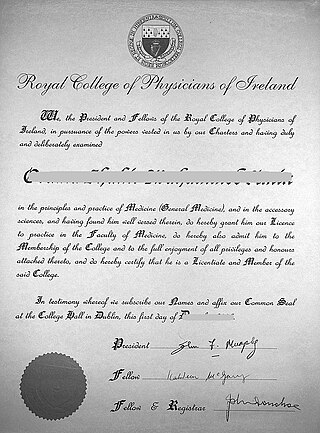
Membership of the Royal College of Physicians of Ireland (MRCPI) is a postgraduate medical qualification in the field of general internal medicine awarded by the Royal College of Physicians of Ireland (RCPI) thorough examination. The MRCPI in general internal medicine is accredited by the Irish Medical Council as the foremost knowledge-based assessment for internal medicine in Ireland. In addition, many countries worldwide recognize the qualification as a postgraduate degree in internal medicine and designate its holder as a specialist physician. The 3 parts of the MRCPI examinations are held throughout the Republic of Ireland and its overseas centers. As of April 21, 2022, according to the RCPI's examination calendar 2022, the RCPI does not seem to conduct any examination in India. The MRCPI in general internal medicine is the flagship qualification and examination of the RCPI and should be differentiated from its other postgraduate qualifications awarded through examinations in other specialities.
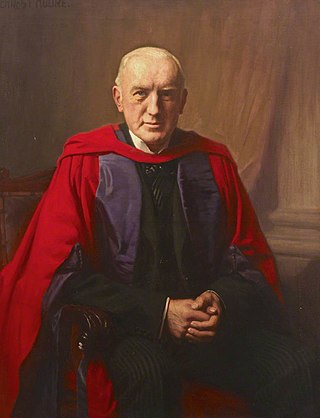
Sir Arthur Stanley Woodwark, was a British physician who served as dean of the medical school at Westminster Hospital.








